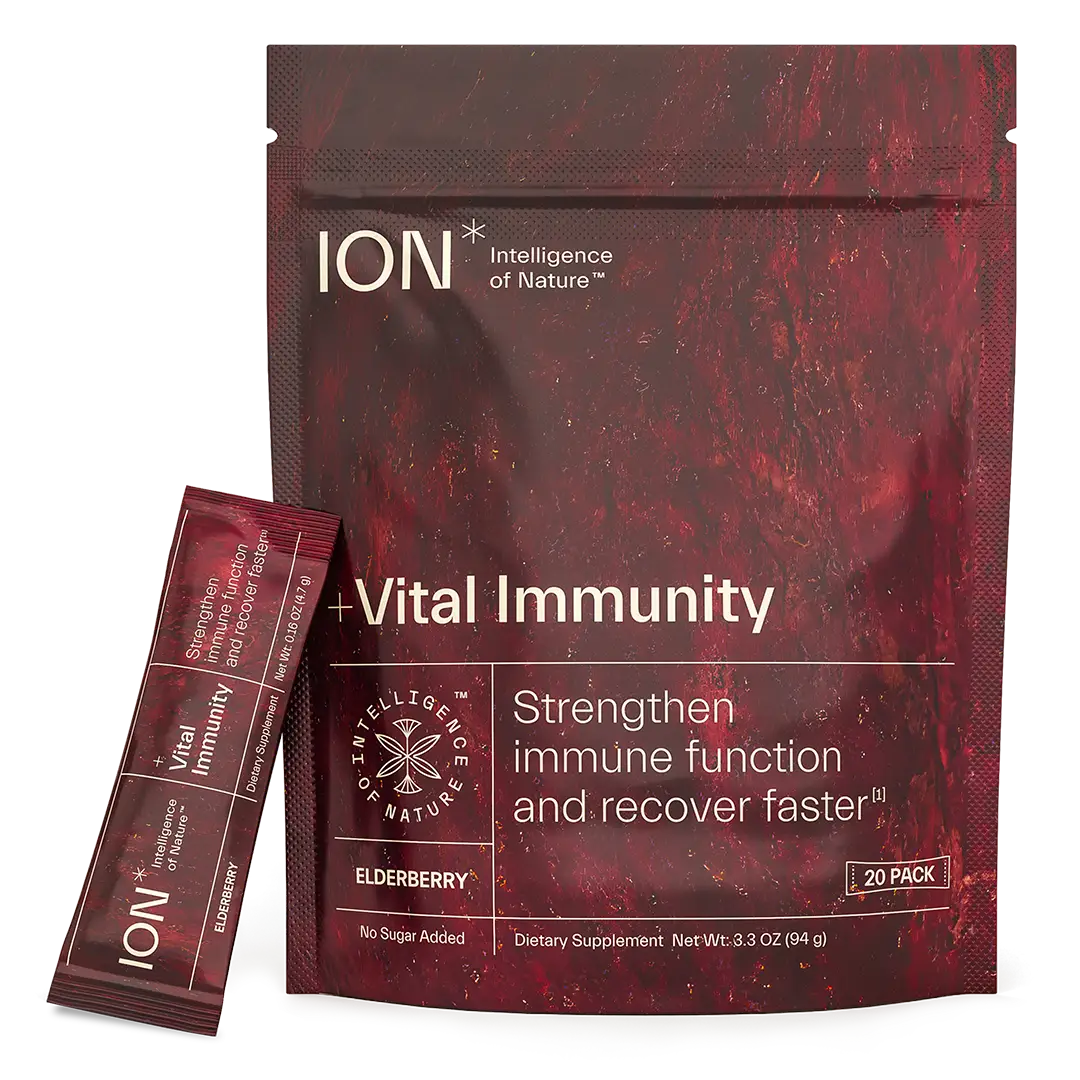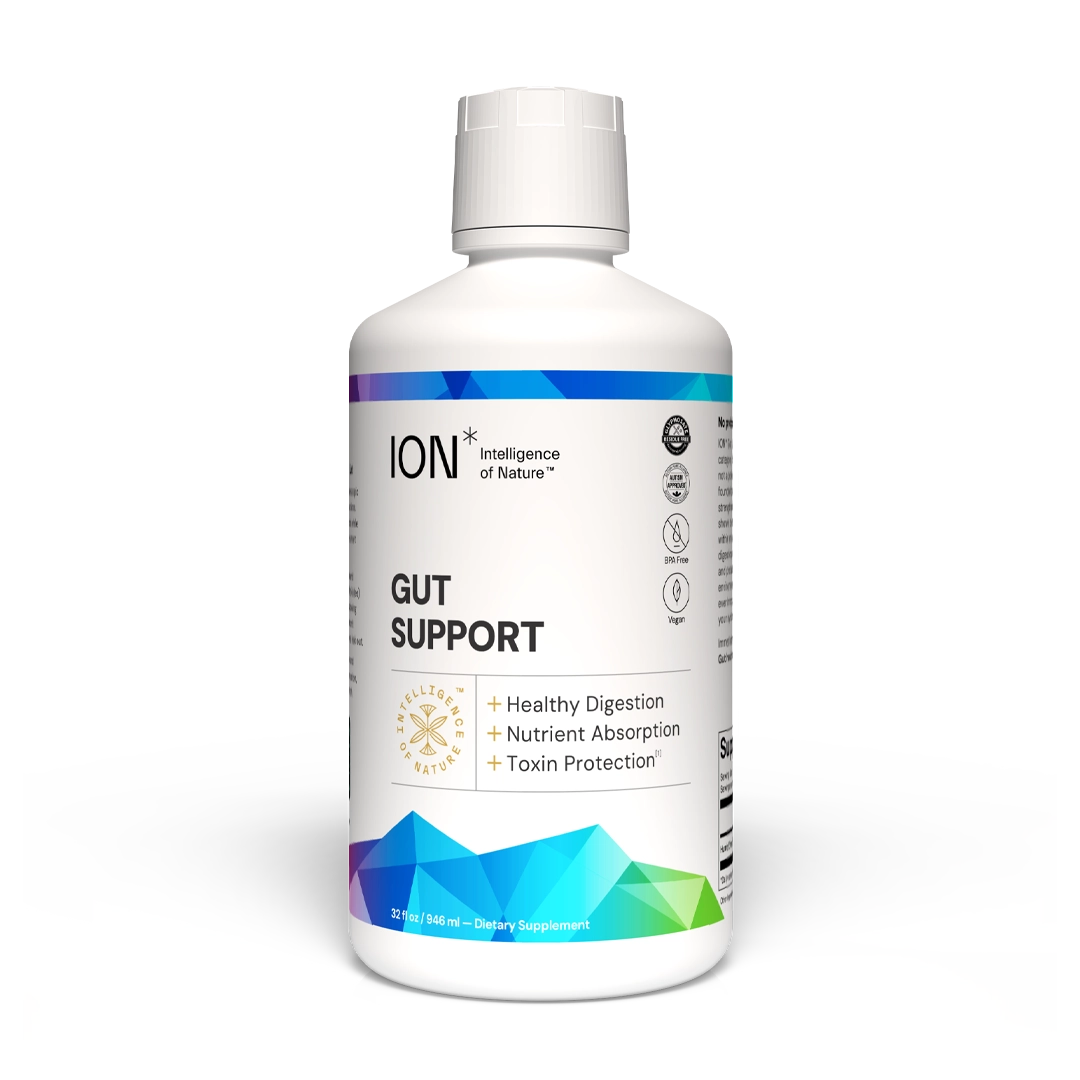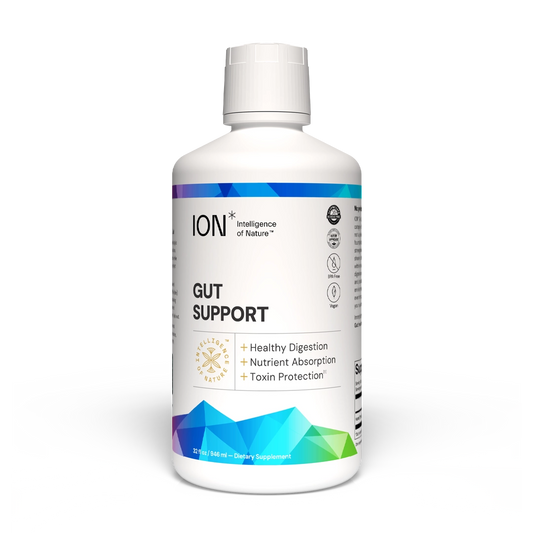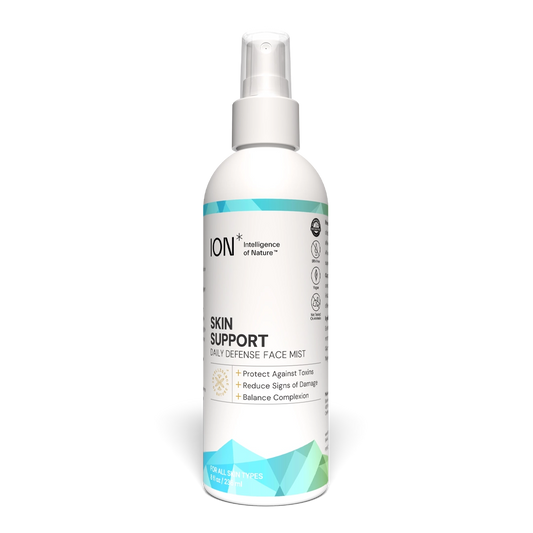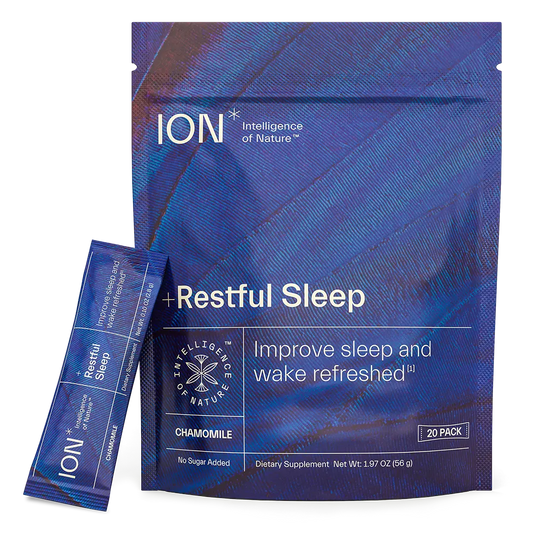When you think of a microbiome, you may automatically think of the one in your gut. And that’s with good reason. The importance of improving gut health–thanks in large part to the gut’s microbiome–is well known. And the more research emerges, the more we deepen our understanding of just how important a healthy gut microbiome is to our overall wellbeing. (Really, everything from immune function to mental health is connected to the gut!)
Read our blog post to learn more about The Relationship Between Gut Health and Your Immune System.
But did you know we all have another, equally important microbiome? The skin’s!
What Is the Skin Microbiome?
Like the gut microbiome, the skin microbiome is a pretty bustling place, filled with trillions of microbes–bacteria, fungi, parasites–that all work in tandem to keep the body in balance. Also like the gut microbiome, your skin microbiome is completely unique to you. This means the nuances and make-up of your skin’s microbiome are influenced by who you are and even where the microbiome is located on the body. (Referring to a specific location of the skin microbiome is called the “eco-niche”, if you want to throw that phrase into your next casual conversation.)
Think about it: the microbiome in the crook of your elbow would have to be vastly different than the one on your face. And the skin microbiome of a sweaty teenage boy and a premenopausal woman are worlds apart, flourishing with different microbes that are suited for their unique bodies.
While there are trillions of little buggers in the skin microbiome (no pun intended), they can be grouped into three categories: commensals, symbionts, and pathogens. Commensals help maintain the balance between “good” and “bad” microorganisms (to put it very simply). Symbionts are super beneficial–they produce postbiotics which help fortify the skin’s moisture barrier. And though they have a bad rap, pathogens are not necessarily a problem–they just tend to be what the scientific community calls “opportunistic” and can trigger skin issues if they’re thrown out of balance.
Importance of the Skin Microbiome
Your skin, as many a Tuesday night trivia answers will inevitably point out, is indeed your largest organ–with a sizably large job to match in taking care of you. When your microbiome is healthy, it can help with a lot of things, way beyond the surface of the skin. Your skin’s microbiome…
Communicates with your immune system
When scientists did a deep dive into the dermis looking for microbes, they were surprised just how deep they were able to find them–all the way down to the subcutaneous layer of fat. While more studies are needed (and ongoing!), researchers believe that this indicates communication between the skin microbiome and the immune system.
Alleviates inflammation
Related to the above, because the microbiome and skin communicate with one another, they can help dampen inflammation for each other. For example, if the microbiome is out of line, the immune system can release antimicrobial peptides to help balance things out. And on the flip side, the good bacteria in the microbiome can inhibit inflammatory compounds coming from the immune system.
Defends against infection
In addition to your skin acting as your outermost layer of protection from all things, its microbiome helps protect against infection in much the same way that your gut microbiome does: by helping crowd out and overcome the overgrowth of “bad” pathogenic organisms.
Protects against environmental woes
Your microbiome helps heal wounds and is important for limiting exposure to allergens and minimizing oxidatives. And new research shows your microbiome can even protect you from harmful UV rays.
What Disrupts the Skin Microbiome?
Knowing how hard the microbiome works to take care of you, of course you want to take care of it. There are a few major watch outs that spell harm for your skin’s microbiome to keep top of mind. Your skin’s microbiome can be harmed by…
A compromised gut microbiome
Surprise, surprise–new research shows that things damaging to your gut microbiome can also influence what’s happening to the skin’s microbiome. This is because of something called the gut-skin axis. (Basically, your microbiomes communicate with–and are influenced by–one another.) That is why skin health is so important.
Not eating for gut health
A diet that’s not great for a gut microbiome isn’t going to be doing any favors to your skin’s microbiome, either. That is, a diet filled with sugar and inflammation-causing foods can wreak havoc on your skin’s microbiome too! Maybe those old adages about chocolate and French fries contributing to acne weren’t so outlandish, after all.
Learn about the Best Foods for Gut Health.
Over-zealous use of antibacterial soap & hand sanitizers
Protecting ourselves from sickness is important, and of course sanitizer and soap are key for that reason alone. (Not to mention, you know, hygiene.) But there is definitely such a thing as “too much of a good thing” when it comes to their use. Overusing these products contributes to an unbalanced skin microbiome and even antibiotic resistance, which exacerbates a whole host of skin conditions, like allergies, psoriasis, eczema, contact dermatitis, acne, dandruff, yeast and fungal infections, rosacea, and faster appearance of skin aging.
Little (or no!) exposure to nature
Due to our increasingly urban environments, exposure to different microbes present in parts of nature is decreased–which leads to a less diverse (and therefore less healthy) skin microbiome. Getting in some green time isn’t just good for your physical fitness and mind–it’s good for your skin’s health, too.
How to Support Your Skin’s Microbiome
Although it’s true the skin microbiome is totally unique to each person, they all share one important factor: they are equally important to health and wellness for everybody. (Literally. Every body needs a healthy skin microbiome.) And while there’s no “one-size-fits-all” approach for a “perfect” microbiome, there are some things you can do to help yours, regardless of who you are. (Sweaty teenagers and premenopausal women alike!) To take care of your skin’s microbiome, you should…
Get in some green time
If the lack of exposure to microbes in nature is contributing to a less-than-ideal skin microbiome, the solution is fairly obvious: get outside! And it’s actually not that difficult to get the benefits for your microbiome, either–no need for a two week excursion into the most rugged wilderness needed. Studies show that even urban green landscapes can provide the benefits of nature exposure. When you go out in nature, be it a city park or a remote hike, the microbes out there literally transfer to your skin (and nasal!) biomes.
Eat healthy & stay hydrated
Honestly, this advice is the gold standard for just about anything related to health. So, whether or not you are focused specifically on improving your skin’s microbiome, this is just generally a great idea. Now, for your skin microbiome especially, proper hydration and healthy, nutritious foods (greens, whole grains, gut-friendly fare) are going to help your microbiome flourish and keep your skin plump and glowing.
Read our blog post to learn why Skin Hydration matters.
Work up a sweat
How do sweat and nutritious eating go hand and hand? If you’re eating well (see above), you’re doing more secondary benefits for your skin than you may even realize! A good diet helps your sweat’s ability to produce a fortifying prebiotic for your skin’s microbiome. (Plus, increasing blood flow is also good for nourishing your skin with oxygen and vital nutrients.)
Take care of your gut
If what harms the gut microbiome can harm the skin microbiome, the inverse can be true, too. That is, supporting your gut health is a great idea for a huge myriad of benefits–including helping take care of your skin’s microbiome!
Taking Skin Care (And Microbiome Care!) to the Next Level With ION*
The good news? In addition to eating healthy, getting outdoors, and avoiding harsh cleansers, you can take care of both of your microbiomes, effectively, simply, and naturally.
That’s where ION* comes in–all natural, scientifically proven wellness solutions created to help your body flourish the way nature intended. Because the best thing for your body–and your microbiomes–is to support how it naturally functions instead of adding anything extra to it (Yes, even you, “good” bacteria.)
First, take care of your gut and you’ll help support your skin microbiome, too. (Remember the gut-skin axis?) ION* Gut Support is scientifically proven to support your gut at the cellular level, which aids in diversifying your microbiome and helps bolster and improve your immune function, among a whole host of other things.
And now, there’s a way to take your microbiome self-care even further with all-natural, super simple, scientifically proven ION* Skin Support. Just like Gut Support, Skin Support works with your body to bolster its natural function and help it thrive from the inside out. ION* Skin Support defends against toxins and facilitates microbial connection, helping to reduce redness and signs of skin damage while also encouraging skin to breathe and glow.
Beyond these core benefits, ION* Skin Support is also specially formulated to work with keratinocytes (skin cells) to stabilize free radical production and promote an increase in glutathione, which has been found to decrease wrinkles and increase skin elasticity.
And the best part? It’s beyond easy to start taking care of your skin’s microbiome. Simply mist ION* Skin Support on your skin twice a day for better skin you can see and feel. (If only everything good for our health was so easy.)
Ready for your healthiest skin microbiome and most glowing, gorgeous skin yet? Try ION* Skin Support today and get spritzing.


